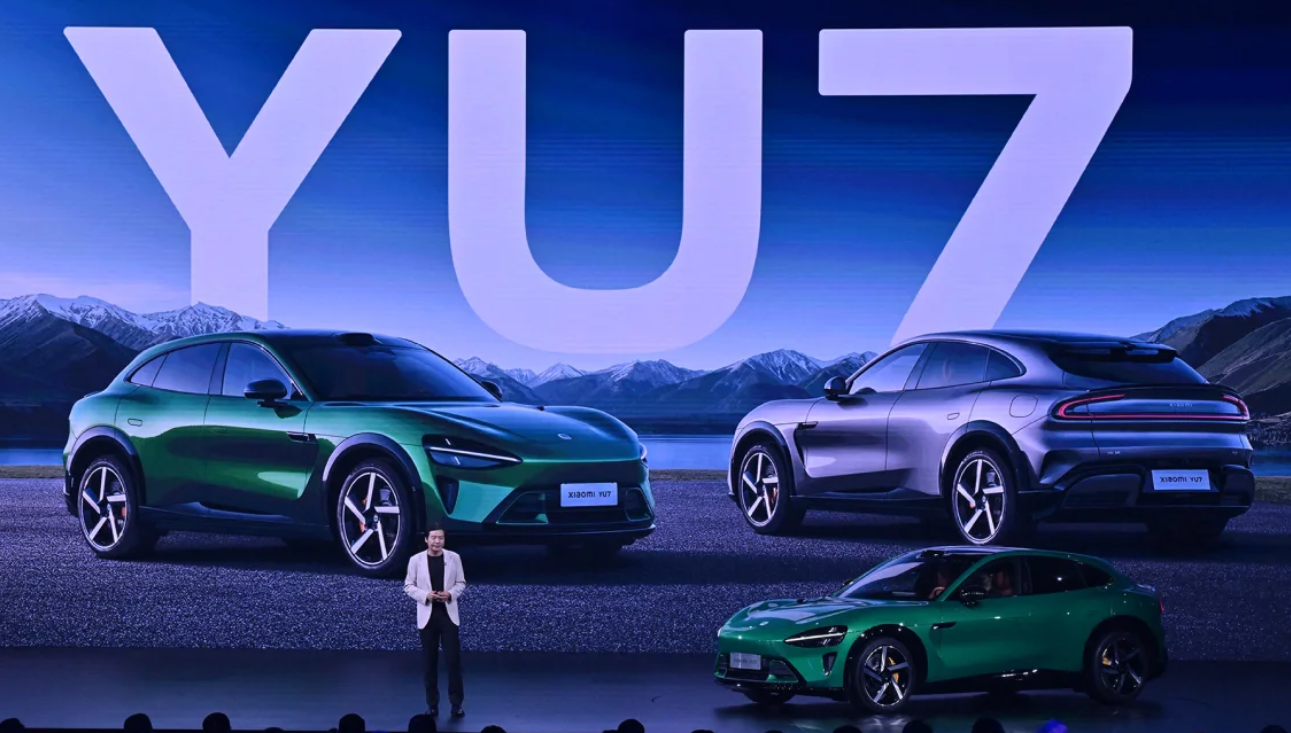Chinese tech giant Xiaomi has unveiled its first electric SUV and a self-developed smartphone chip, marking a significant step beyond its traditional focus on affordable electronics.
At a livestreamed event in Beijing on Thursday, Xiaomi’s founder and CEO, Lei Jun, introduced the YU7 SUV and the Xring O1 chip, a cutting-edge 3-nanometer processor designed to compete with high-end chips from Apple and Qualcomm. The company also showcased other products, including a new tablet, as part of its 15th-anniversary celebrations and a broader strategy to redefine its brand.
The YU7 SUV, which will launch in July, boasts an impressive driving range of up to 835 kilometers (518 miles) on a single charge. Its top-tier model can accelerate from zero to 100 km/h (62 mph) in just over three seconds, a performance that Lei says surpasses Tesla’s Model Y and similar Porsche models. Standard versions will feature advanced driver-assistance technologies. However, pricing and pre-order details were not disclosed, with Lei noting on social media that these would be announced at a later date.
Xiaomi’s foray into electric vehicles has faced challenges, particularly after a fatal accident involving its first EV, the SU7 sedan, in March. The crash, which resulted in three deaths, raised concerns about the company’s self-driving technology and caused a dip in vehicle orders the following month.
Alongside vehicles, Xiaomi is heavily investing in semiconductor development. Lei revealed that the company has poured 13.5 billion yuan ($1.87 billion) into creating the Xring O1 chip. Following Apple and Nvidia’s model, Xiaomi designs its chips but relies on Taiwan Semiconductor Manufacturing Company (TSMC) for production.
Lei claims the Xring O1 outperforms Apple’s latest A18 Pro chip in several aspects, including operating at lower temperatures during intensive gaming sessions. The chip will debut in Xiaomi’s new 15S Pro smartphone, priced at 5,499 yuan ($764).
This achievement in 3-nanometer chip technology puts Xiaomi ahead of rivals like Huawei, which struggles to manufacture chips smaller than seven nanometers due to U.S. sanctions and its ban from collaborating with TSMC. Smaller nanometers represent more advanced and efficient chip production.
Chinese state media has praised Xiaomi’s chip development as a major breakthrough for private companies navigating a complex global tech landscape.
While some Xiaomi smartphones still use chips from Qualcomm and MediaTek, the company’s move to self-designed chips aims to reduce reliance on external suppliers and follow Apple’s integrated hardware-software model. Beyond smartphones, the Xring chip will also power Xiaomi’s flagship tablets.
Lei shared that Xiaomi began developing its own chips back in 2014 and has committed at least 50 billion yuan ($7 billion) over the next decade to this effort. The company plans to invest at least 6 billion yuan ($833 million) this year alone, supported by a research team of 2,500 staff.
Chinese state-run media has highlighted Xiaomi’s innovations in electric vehicles and chip manufacturing as examples of private businesses’ resilience and capability to innovate despite international challenges.
This development comes amid ongoing tensions between the U.S. and China over access to advanced semiconductors. Recently, Beijing criticized Washington for discouraging companies from using AI chips made by Huawei and accused the previous U.S. administration of undermining trade talks aimed at easing tariffs and reaching broader agreements.














